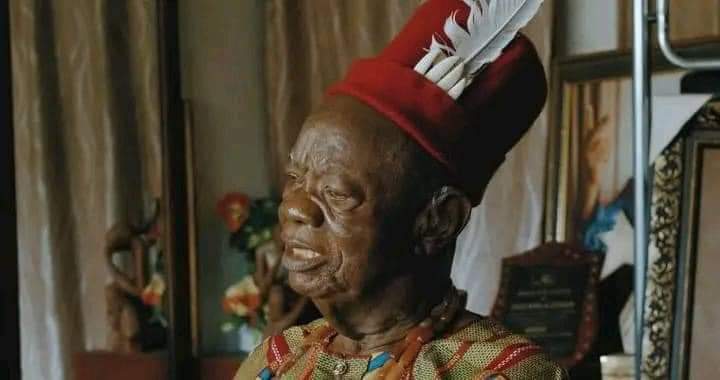In what many social commentators have termed an unexpected turn of events, a viral dance by Nigerian comedian and content creator Brain Jotter has brought renewed attention to the music of legendary Igbo folklore musician Mike Ejeagha.
The song “Ka Esi Le Onye Isi Oche,” popularly known as “Gwo Gwo Gwo Ngwo,” has experienced a resurgence in popularity 41 years after its initial release, thanks to a social media trend.
Mike Ejeagha, often referred to as “Gentleman Mike Ejeagha,” is a seminal figure in the evolution of Igbo music. Born on April 4, 1930, in Enugu State, Nigeria, Ejeagha has been a key player in the preservation and promotion of Igbo cultural heritage through music.
His career, which began in the mid-20th century, has seen the release of over 300 recordings, many of which are archived at the National Archives of Nigeria. These recordings highlight his extensive fieldwork and dedication to documenting Igbo folklore and highlife music.

Ejeagha’s distinctive musical style is marked by rich storytelling, profound Igbo proverbs, and a didactic approach. His songs, predominantly in the Igbo language, convey deep moral and cultural lessons, often accompanied by his signature guitar melodies. This unique blend has made Ejeagha a revered figure in Nigerian music, whose influence spans generations.
The song “Gwo Gwo Gwo Ngwo” was part of Ejeagha’s extensive repertoire and is known for its engaging rhythm and insightful lyrics. Despite its initial success, the song had faded from mainstream recognition until Brain Jotter’s viral dance brought it back into the limelight. The dance, which features rhythmic movements that align perfectly with the song’s beat, quickly gained traction on social media platforms, with numerous content creators and fans joining the trend.
Rumors have circulated that Brain Jotter recently paid a visit to the now 94-year-old musician to pay his respects, acknowledging the profound impact of Ejeagha’s work on his own creative expression. This gesture has not only highlighted the enduring relevance of Ejeagha’s music but also bridged a generational gap, introducing the timeless sounds of Igbo folklore to a new audience.
The resurgence of “Gwo Gwo Gwo Ngwo” is a proof of the enduring power of music and its ability to connect people across different eras. Mike Ejeagha’s contributions to Nigerian music and culture continue to resonate, proving that great art remains timeless, waiting for moments like these to be rediscovered and cherished.





